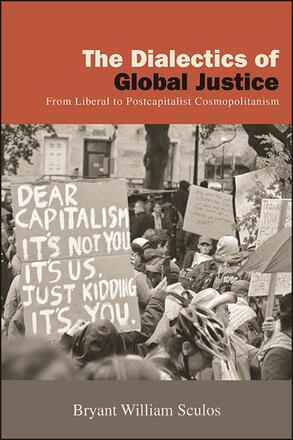
The Dialectics of Global Justice
From Liberal to Postcapitalist Cosmopolitanism
Alternative formats available from:
Draws on Marx and the first-generation Frankfurt School to make the case that cosmopolitanism must become a postcapitalist political theory.
Description
The Dialectics of Global Justice uses a novel application of negative dialectical interpretation to offer an immanent and ethical critique of prominent theories of global justice (i.e., cosmopolitanism), including how these theories manifest in political movements and policy agendas. Drawing on the work of Theodor Adorno and Erich Fromm especially, author Bryant William Sculos exposes the contradictory relationship between cosmopolitanism and core elements of capitalism, particularly the domineering "capitalistic mentality" (re)produced by and through capitalism, leading to the conclusion that cosmopolitanism, on its own terms, demands an alternative, postcapitalistic political basis in order to make robust progress toward global justice. While offering this critique, Sculos also implicitly challenges the increasingly common view that cosmopolitanism today is inherently imperialistic and out of touch with the global resurgence of nationalism and anti-cosmopolitan sentiment.
Bryant William Sculos is Lecturer in the Department of Political Science at the University of Texas Rio Grande Valley.
Reviews
"This unique argument, which advances cosmopolitanism through a critique of capitalism and ecologism, will fill a large gap within political science and international relations on the economic aspects of cosmopolitanism." — Shannon Brincat, University of the Sunshine Coast, Australia
"In a time when authoritarian populism, Covid-19, and climate change threaten the very foundation of institutions, we now, more than ever, need to question the failed promises of liberalism and cosmopolitan justice. Sculos addresses this growing need in three critical ways: by probing the contradictory limitations of cosmopolitanism, reengaging the often-overlooked ideas of Theodor Adorno and Erich Fromm, and reclaiming the ontological and practical possibilities of a post-capitalist justice. The result is an enriching and insightful book that deserves to be read by liberals, Marxists, and anyone interested in the big questions concerning twenty-first-century justice." — Steven C. Roach, author of Decency and Difference: Humanity and the Global Challenge of Identity Politics